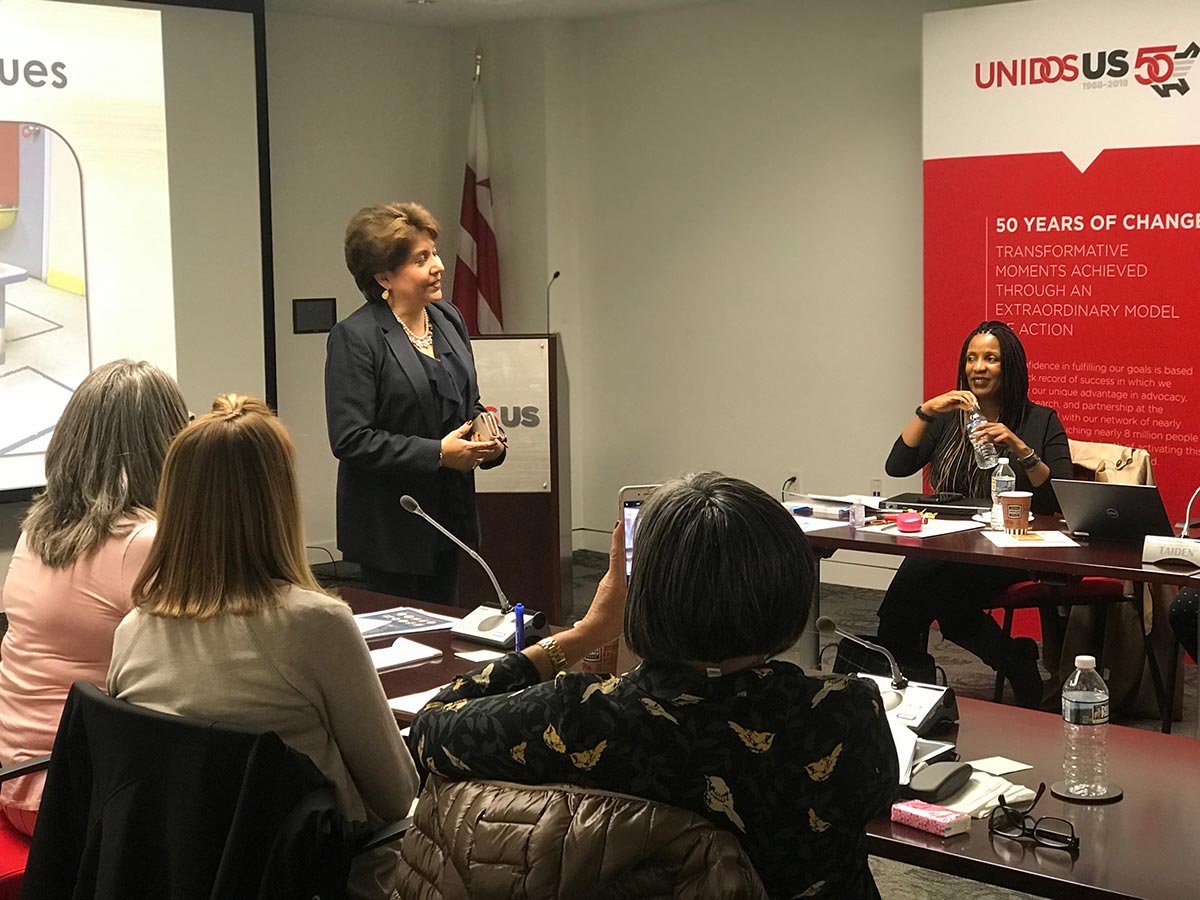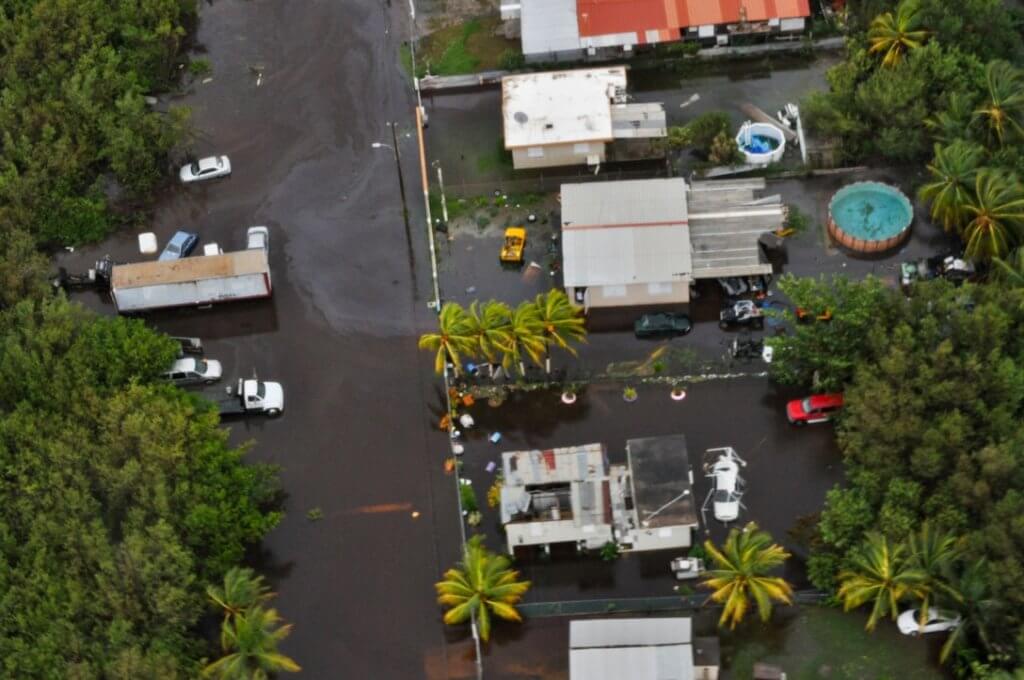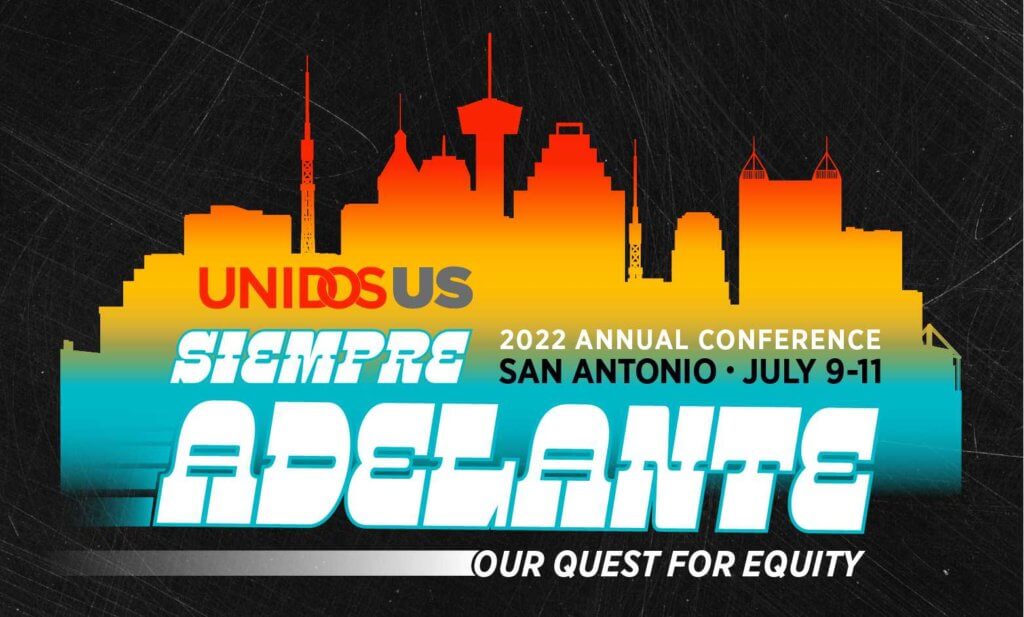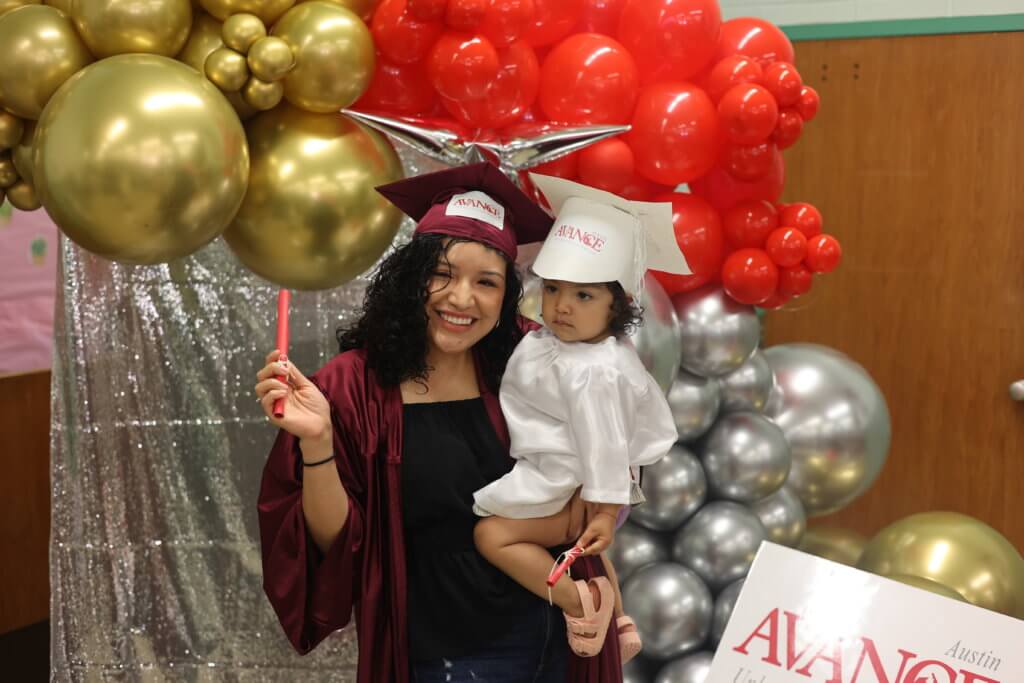Training provides our Affiliate leaders the tools to ensure healthy childhoods in their communities
Healthy and Ready for the Future training shows the power of the UnidosUS Affiliate Network by bringing together health and early education organizations to foster peer-learning and strengthen connections.
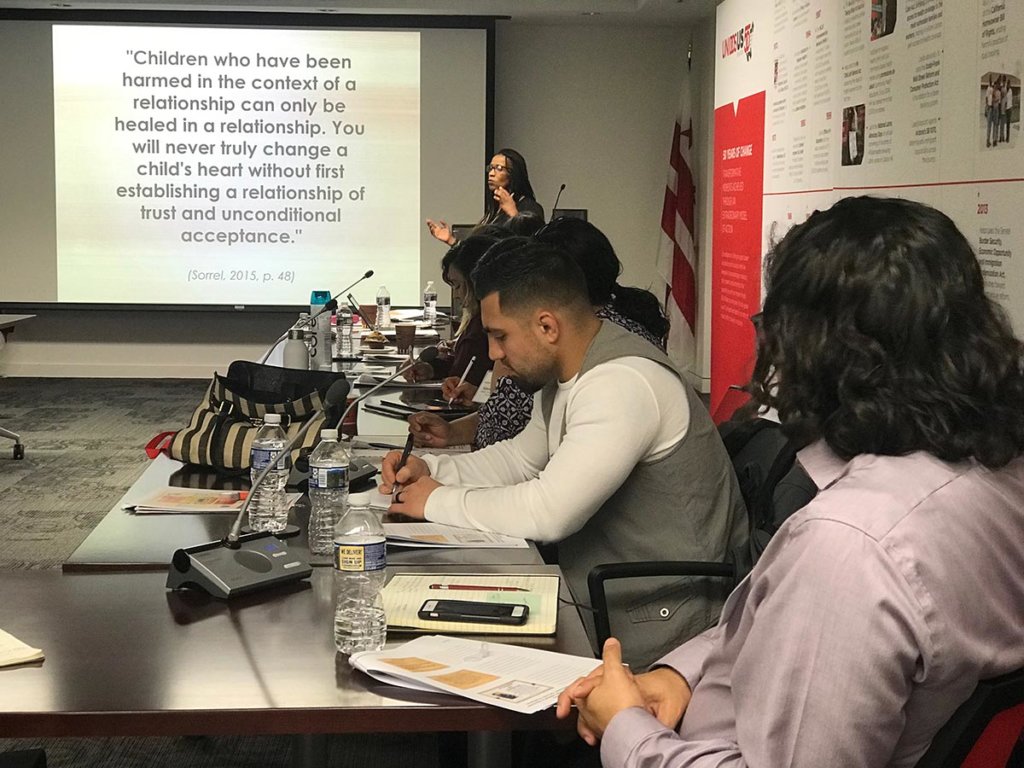
Picture this. You come into a room you have never been before, mostly with people you have never met before, while you have breakfast and wait for a scheduled two-day training to begin.
Eight organizations and 16 attendees—two per organization—are present at the Healthy and Ready for the Future Service Provider Training that has coincided with a snowstorm in Washington, DC. It has closed UnidosUS’s headquarters for a day, but the training continues.
There are many unknown faces in the room, but these will soon become familiar, and the attendees will become close peers after the training on this UnidosUS initiative that provides oral and behavioral health care services for Latino children, especially those from migrant and seasonal farmworkers families, across rural America.
Healthy Teeth, Healthy Life
With funding support from the Red Nose Day Fund at Comic Relief, Inc., Healthy and Ready for the Future works toward a mutual goal “to change and save the lives of millions of children living in poverty in the U.S. and in the poorest communities around the world.”
But the initiative goes beyond the importance of having healthy teeth. It emphasizes the cost of not having them—poor oral health can lead to problems eating, speaking, learning, and socializing, which can result in higher school absenteeism and lower self-esteem.
By the age of five, about 60% of U.S. children will have had caries. The percentage of caries among those ages two to eight is highest among Latino (46%) as compared to Black (44%) and White children (31%).
And children living in poverty are twice as likely to suffer tooth decay than their more affluent peers. So, addressing gaps in oral health for low-income and Latino children to achieve health equity is an essential social and economic imperative.
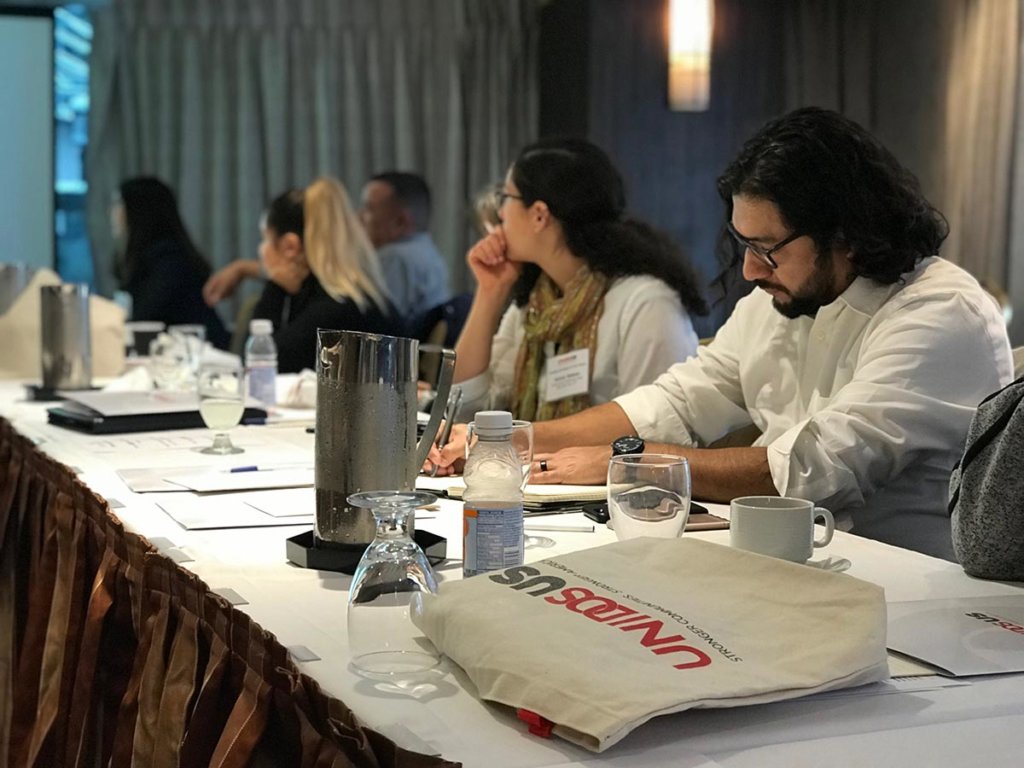
Achieving Collective Impact
Tackling the issue requires different strategies, especially across rural areas that are similar as a whole but each one with unique needs and resources. Thus, convening these organizations in one room to foster the sharing of best practices and lessons learned is key to achieve the greatest impact. In fact, the impact has already been great. Just last year, Healthy and Ready for the Future had a goal of serving 10,000 children but reached more than double that number: 25,093. But there’s more than can be done.
“There are challenges to reach out to the children of farmworker families,” says Elizabeth Carrillo, Program Manager for Health at UnidosUS. Many of these children are not in formal child care, head start, or pre-K programs because they are being taken care of by a caregiver, such as a parent or abuelita, at home. But the organizations present are working on solutions.
Six UnidosUS Affiliates have been part of this program from the start in 2016: Clínicas de la Salud del Pueblo (Coachella, California); Chicanos Por La Causa (Phoenix, Arizona); Sea Mar Community Health Centers (Seattle, Washington); El Concilio (Modesto, California); Su Clínica (Harlingen, Texas); and Redlands Christian Migrant Association (Immokalee, Florida).
In 2019, two more organizations—Centro de la Familia Utah (Salt Lake City, Utah) and Inspire Development Centers (Sunnyside, Washington)—are joining them.
All these organizations—three Federally Qualified Health Centers (FQHCs) and five community based organizations with Migrant Seasonal Head Start programs—serve rural and migrant and seasonal farmworker children, and Healthy and Ready for the Future supports them to link these families to a primary health care provider and increase access to timely health care services. In an effort to serve children more holistically, UnidosUS is incorporating a social and emotional wellbeing component into the initiative this year. Therefore, this training introduced participants to a trauma-informed framework and practices for early childhood programs. The gathering made them realize the collective impact they can have by working in this initiative together to transform the lives of Latino children every day.
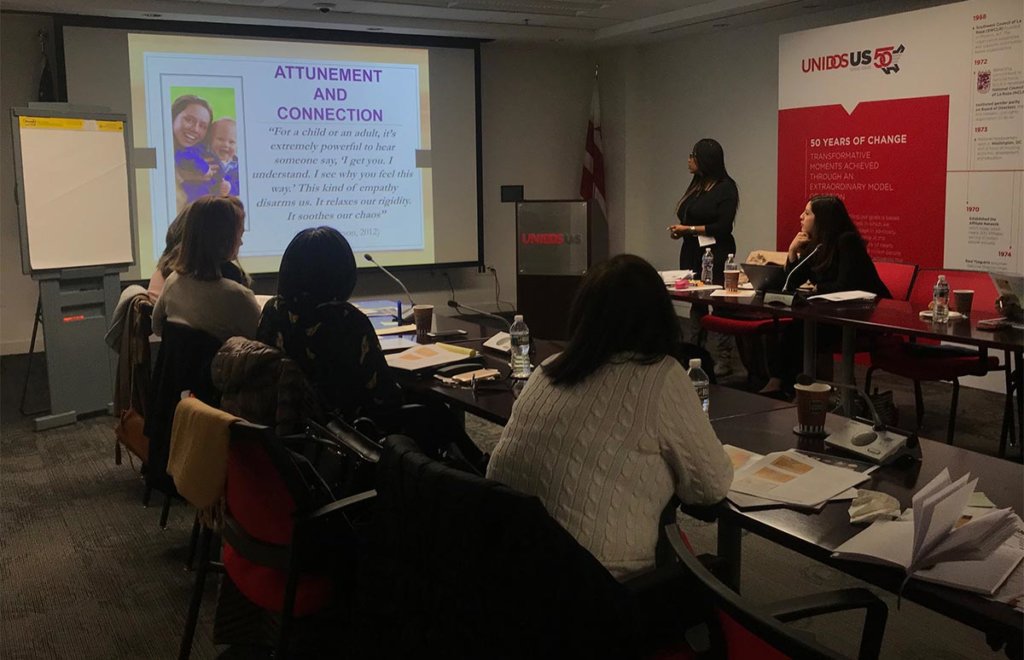
The room was filled with expertise, and the meeting sparked conversations and many opportunities to share best practices:
- Lizett Palacios, Behavioral Health Case Manager at Clínicas de Salud del Pueblo, shared how she used to go to the fields and talk to the mayordomos to promote their services.
- Alex Narvaez, Vice President of Dental Affairs and Dental Chief Officer, talked about the idea of delivering píldoras de salud, messages that you repeat over and over again for them to become part of someone’s knowledge.
- Holly Paulsboe, Health and Wellness Coordinator and Teacher at RCMA, mentioned that she does mindfulness work with her students, teaching them to be present and calm in wherever space they find themselves.
Understanding Trauma and Self-Care
There are many pieces that make up this work. It goes beyond oral care, and it includes reaching out to kids who might have never had contact with a dentist before; they might have never seen their tools, or they might have gone through a traumatic experience that makes visiting the doctor challenging.
Bringing that awareness and realization was another of the goals of this two-day training, to understand where these children might be coming from when they arrive to these organizations and be able to give them the best possible experience to have a positive impact in their lives. UnidosUS invited LaWanda Wesley, Ed.D from WestEd Connection, to give the organizations a snapshot on trauma-informed practices for early childhood programs, with the goal of creating environments that support children’s health and healing.
Wesley’s presentation deeply resonated with all participants. In these two days she guided the group to define trauma, its impact, and the strategies they can use in their organizations to support children—and families—going through it, like having safe spaces, or talking to children at their eye level. Having positive relationships, interactions and environments make all the difference when dealing with children who have experienced trauma or the toxic stress that often accompanies adversities related to living in poverty.
But Wesley also wanted to make sure the attendees comprehended that the key to have those positive interactions with the children and families they serve starts with one’s own well-being. Self-care was a big part of the session Wesley led, understanding that we can only give the best of us (in our personal and professional relationships) when we take care of ourselves. Taking time during the day to process and decompress is essential, and Wesley encouraged participants to embrace this practice.
This was an eye-opening presentation for all the individuals present: it resonated with the work they do every day, in their schools and clinics, with the children they serve, and they are now looking forward to taking these learnings back to their organizations.
Participants were thrilled to get to know each other better and left eager to return to their organizations, with this new understanding, and many new ideas to implement in their programs and departments.
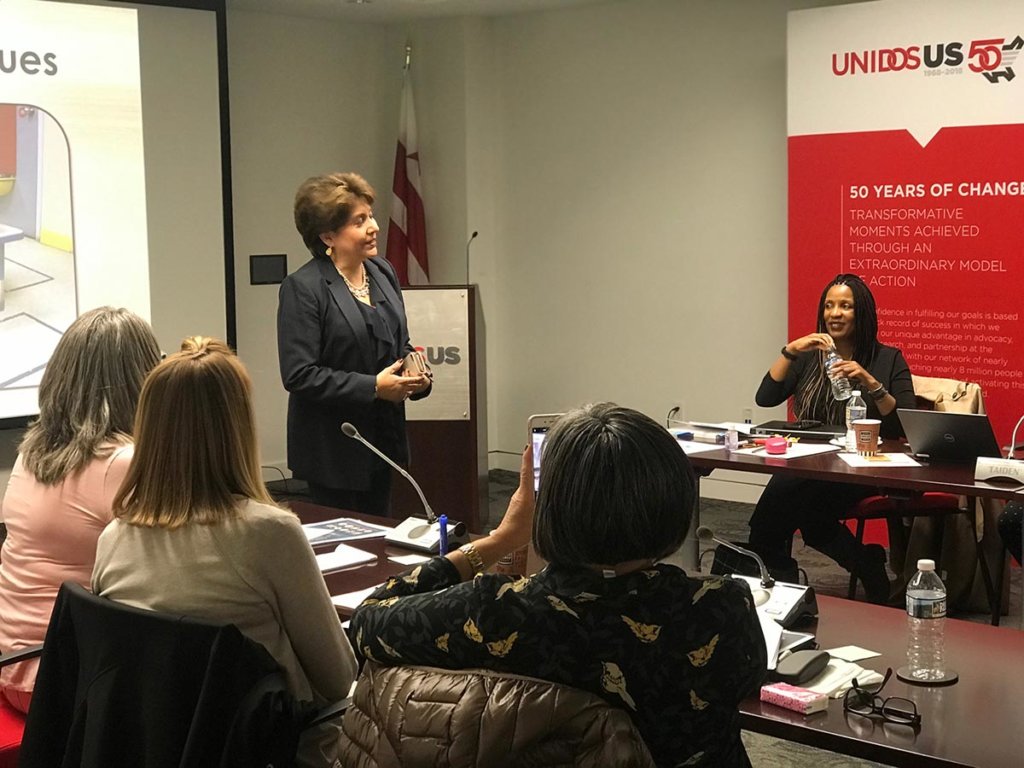
TAKEAWAYS FOR FUTURE WORK
Centro de la Familia de Utah
“We will work with our teachers, so the students won’t be afraid of the dentist’s tools by using the practice of ‘Name It to Tame It’: show the tools so the children can feel more comfortable when visiting the doctor.” – Varinia Nelson, Health and Nutrition Specialist.
Inspire Development Centers
“We will create a stronger relationship with the physicians that will work with our children, so they are aware of trauma-informed practices.” – Yolanda Arellano, Mental Health/Disabilities Compliance Specialist.
“We will focus on self-care for our teachers as well, giving them the time to process their thoughts and emotions so we are able to help our children better and foster their learning.” – Chris Castillo, Health/Nutrition Compliance Specialist.
Chicanos Por La Causa
“We haven’t taken advantage of sharing expertise interdepartmentally. There is a bag of expertise and we assume that profoundly someone understands all of it, but it is not the case. We will work on changing that.” – Elías Burboa, Director, Centro de la Familia (Maryvale).
Sea Mar Community Health Centers
“We will look more closely at the input we get from the schools and institutions we work with and integrate all the information learned this week about trauma and self-care in all departments of our organization.” – Isamary Herrera, Dental Assistant III.
El Concilio
“It has been really good for us to learn about trauma. We are going to meet with the key players of our organization and put all we’ve learned in place.” – Reyna Lopez, Oral Care Case Manager.
Clínicas de Salud del Pueblo
“We have realized how self-care is major for the wellbeing of our staff and community at large. We are going to prepare a presentation to share with the whole team what we have learned this week.” – Luz Moreno, Community Engagement Program Manager.
Redlands Christian Migrant Association
“As teachers and advocates of our community, we wear selflessness as a badge of honor, but without self-care we cannot do the best for our students. I have realized that, and I plan to bring it back to my organization.” – Holly Paulsboe, Health and Wellness Coordinator and Teacher.
Their excitement shows how valuable connecting with fellow service providers is and speaks to the power of the UnidosUS Affiliate Network, its wealth of knowledge and expertise, and commitment to community.
By Beatriz Paniego-Béjar, UnidosUS Content Specialist
